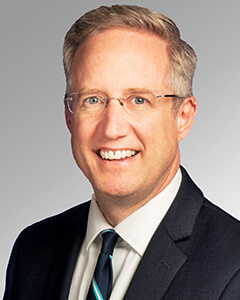NETWORKS AT WORK
The power of equity-focused professional learning
By Paul Fleming
Categories: Collaboration, Equity, Implementation, Leadership, School leadershipDecember 2022
Principals are a critical lever for implementing schoolwide policies, practices, and mindsets that create equitable outcomes for all students (Gates et al., 2019; Grissom et al., 2021). Yet school systems often overlook the kind of high-quality professional learning that results in leaders’ growth and development.
Learning Forward networks are one of the ways we try to fill this gap and ensure continuous improvement for principals and other school leaders, such as assistant principals and heads of school. Our leadership networks bring together school leaders from across buildings and across districts to learn with and from one another. That collaboration helps leaders break through the isolation many of them feel in their buildings. The conversations and action planning we facilitate help them address pressing challenges that they may not even recognize are common across schools.
All of our networks are underpinned by a deep commitment to serving every student, which is articulated in the recently revised Standards for Professional Learning. Three new standards describe the equity practices, drivers, and foundations necessary to develop and support all educators to respect and nurture all aspects of student identity rather than treat them as barriers to learning. These aspects of educator and student identity include race, ethnicity, home language, ZIP code, gender, gender identity, sexual orientation, socioeconomic status, ability, religious or political beliefs, family context, adverse childhood experiences, and other elements of personal or social experience (Learning Forward, 2022).
The intersection of school leadership and equity in the standards provides a path for principals to nurture a staffwide commitment to meeting every child’s needs. It can be challenging for principals to implement equity-focused policies, practices, and mindsets, especially amid the political firestorms occurring in numerous states and districts as some stakeholders seek to block equity efforts. The equity standards can help by showing leaders what an equity mindset really looks like, without the distractions of rhetoric, and steps for helping staff learn about why and how to respect and nurture every child’s needs. These steps and the importance of equity are reinforced in the Leadership standard.
The Equity-Centered Pipeline Initiative, funded by The Wallace Foundation, is one network in which we apply the equity standards (Equity Practices, Equity Drivers, and Equity Foundations) and the Leadership standard to support principals and their systems with the adoption of equity-focused policies, practices, and mindsets. Eight large school districts from across the country — building on the strong evidence that comprehensive, aligned career development pathways can be a feasible, affordable, and effective way to improve student achievement districtwide — are developing principal pipelines with the goal of producing school leaders capable of advancing their district’s vision of equity. Currently in year two of this five-year initiative, each district has formed a district partnership team with local community organizations, two university leader preparation programs, and the state education agency to develop its own definition of equity and define what an equity-centered leader needs to know and be able to do.
The Wallace Foundation chose Learning Forward to design, implement, and evaluate three professional learning convenings each year for these district partnership teams. At the first in-person convening, the teams shared successes, challenges, and ongoing questions in a supportive and engaging environment.
The three new equity standards have shaped how our Learning Forward team designed these convenings in numerous ways, including the use of protocols and structures that ensure equitable access to learning and modeling a culture of support for all district team members.
Each district partnership team is designing a comprehensive, aligned, equity-centered pipeline to translate its vision into reality, provide mentoring and training for aspiring and current principals, and engage in continuous improvement. As the teams engage in this work, we are seeing the following common themes emerge:
- Ensure equity of voices: Each team has carefully solicited a diverse group of stakeholders (principals, teachers, families, and community organizations) when developing its own equity definition and principal pipeline strategic priorities and models.
- Stay committed to the work of equity: To allay criticism about equity-based initiatives, each team has developed extensive communication strategies for explaining the importance of and rationale for why equity is important to developing aspiring and current principals.
- Recognize the importance of equity allies: Each team has expressed the value of convening with other district teams, often in role-alike conversations, to recognize they’re not alone in their equity leadership journeys and share strategies and common challenges.
Columbus City Schools in Ohio is an example of how districts embody these principles. At a recent convening of all eight districts participating in the initiative, the Columbus City Schools team shared why and how it is embedding equity into all departments and services in the district and how it is centering the voices of principals and other stakeholders in doing so. The team has also integrated equity into its board of education goals and district strategic priorities. This systemwide approach demonstrates to the community that equity must be in the DNA of the district and cannot reside with only one leader, like the superintendent, or in one division, like human resources. They also made sure to include and center the voices of principals when creating the district’s definition of equity.
The emerging themes from Columbus and the other seven district partnership teams reinforce Learning Forward’s conception of the equity standards and our commitment to infusing equity throughout Standards for Professional Learning. This deep engagement with the standards will in turn continue to inform our work with the Equity-Centered Pipeline Initiative and other districts and schools.
References
Gates, S.M., Baird, M.D., Master, B.K., & Chavez-Herrerias, E.R. (2019). Principal pipelines: A feasible, affordable, and effective way for districts to improve schools. Rand Corporation.
Grissom, J.A., Egalite, A.J., & Lindsay, C.A. (2021, February). How principals affect students and schools. The Wallace Foundation.
Learning Forward. (2022). Standards for Professional Learning. Author.

Paul Fleming serves as chief learning officer at Learning Forward. His current areas of focus include leading the effective implementation of the revised Standards for Professional Learning and corresponding tools, the expansion of our professional services and leadership and learning series teams, and multiple consulting projects with states and districts to increase educator and leader effectiveness through equity-focused, high quality professional learning.
Categories: Collaboration, Equity, Implementation, Leadership, School leadership
Recent Issues
WHERE TECHNOLOGY CAN TAKE US
April 2024
Technology is both a topic and a tool for professional learning. This...
EVALUATING PROFESSIONAL LEARNING
February 2024
How do you know your professional learning is working? This issue digs...
TAKING THE NEXT STEP
December 2023
Professional learning can open up new roles and challenges and help...
REACHING ALL LEARNERS
October 2023
Both special education and general education teachers need support to help...










